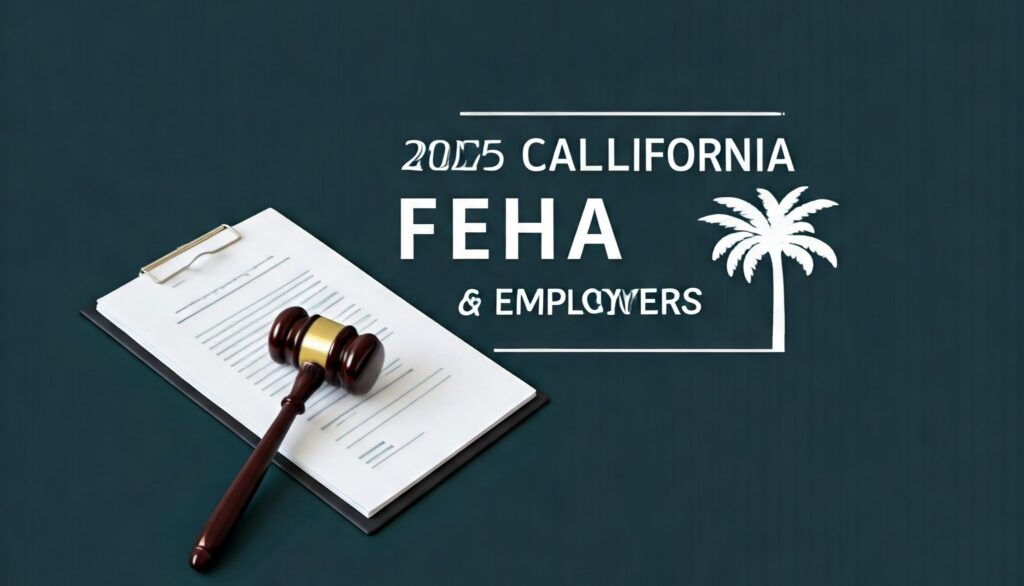Understanding SB 1100 and Its Impact on Hiring Practices
Starting January 1, 2025, California employers face a significant change in their hiring practices due to the Fair Employment and Housing Act (FEHA) amendment, Senate Bill 1100. This landmark legislation prohibits employers from mandating a driver’s license as a job requirement unless:
- Driving is an essential and unavoidable job function: The position necessitates regular vehicle operation for tasks like deliveries, site visits, or client meetings.
- Alternative transportation options are not comparable: Factors like travel time, cost, and accessibility must be considered. If alternative options (public transit, ride-hailing, biking, walking) create significant logistical or financial burdens for employees, a driver’s license may be required.
Key Considerations for Employers:
- Job Descriptions and Advertisements: Scrutinize job postings and applications to ensure they do not unnecessarily require a driver’s license.
- Assessment of Job Functions: Conduct a thorough analysis of each position to determine if driving is truly essential and if alternative transportation options are feasible.
- Communication and Training: Educate hiring managers and HR staff about the new law and its implications for the hiring process.
- Compliance Review: Regularly review hiring practices to ensure compliance with SB 1100 and avoid potential legal challenges.
Benefits of SB 1100:
- Expanded Talent Pool: Access to a wider range of qualified candidates, including those who may not have access to a vehicle or prefer alternative transportation.
- Increased Diversity and Inclusion: Promotes a more equitable workplace by removing barriers for individuals who may face transportation challenges.
- Reduced Environmental Impact: Encourages the use of alternative transportation, potentially reducing carbon emissions and traffic congestion.
California Expands Employment Protections for Non-Drivers
California law already prohibits discrimination based on immigration status, recognizing nonstandard driver’s licenses like AB 60. However, Senate Bill 1100, effective January 2025, broadens these protections by restricting the use of blanket driver’s license requirements in job postings and applications.
This landmark legislation aims to ensure that transportation barriers do not unfairly limit employment opportunities for individuals who:
- Lack a driver’s license: This includes those who cannot afford a vehicle or have physical limitations preventing them from obtaining a license.
- Rely on alternative transportation: Such as public transit, ride-hailing services, biking, or walking.
Key Provisions of SB 1100:
- Essential Job Function: Employers can only mandate a driver’s license when driving is an essential and unavoidable job duty, and alternative transportation is not feasible due to travel time or cost.
- No Blanket Requirements: Job postings and applications must avoid blanket statements requiring a driver’s license unless the above conditions are met.
Impact on Employers:
- Re-evaluate Job Descriptions: Carefully assess each position to determine if driving is truly essential and if alternative transportation options are viable.
- Update Hiring Practices: Adjust job postings and applications to comply with the new law.
- Educate Hiring Managers: Ensure all hiring personnel understand the implications of SB 1100.
Understanding the 2025 California FEHA Amendment: Implications for Employers
To ensure compliance with the 2025 California FEHA Amendment, employers must carefully review their hiring materials, including job postings, applications, and recruitment ads. Starting January 2025, a driver’s license can only be required if it is absolutely essential for the job and alternative transportation methods are not feasible. Furthermore, businesses operating within Los Angeles County must also adhere to the Fair Chance Ordinance, which has specific requirements for job solicitations.
Why the 2025 California FEHA Amendment Matters to Employers
This amendment aligns with broader efforts to remove barriers to employment, particularly for individuals who rely on public transportation, ride-sharing, or other alternative modes of transportation due to financial constraints or physical limitations. By complying with the new law, employers not only avoid potential legal penalties but also gain access to a wider, more diverse pool of qualified candidates. This shift encourages a critical re-evaluation of job requirements, fostering a more inclusive and equitable workplace for all.

